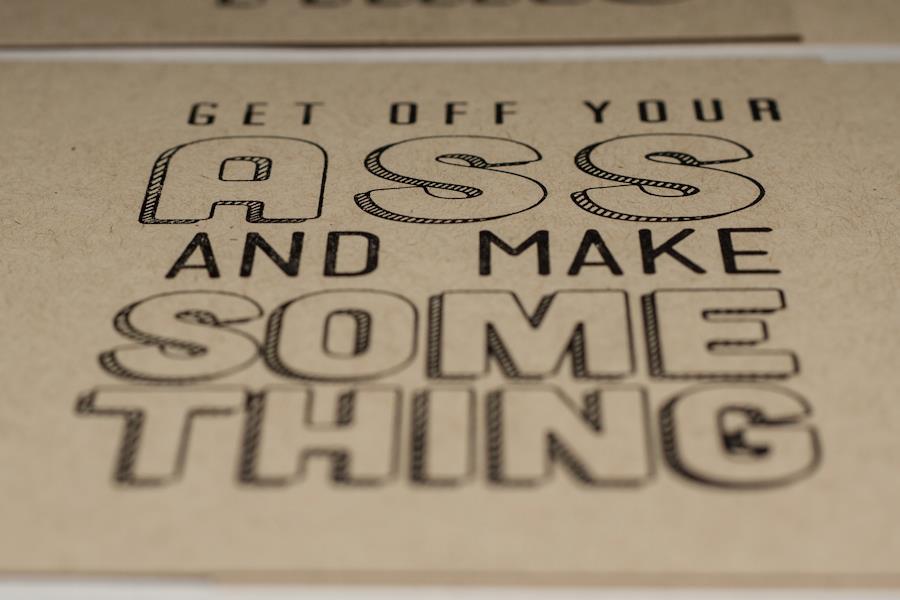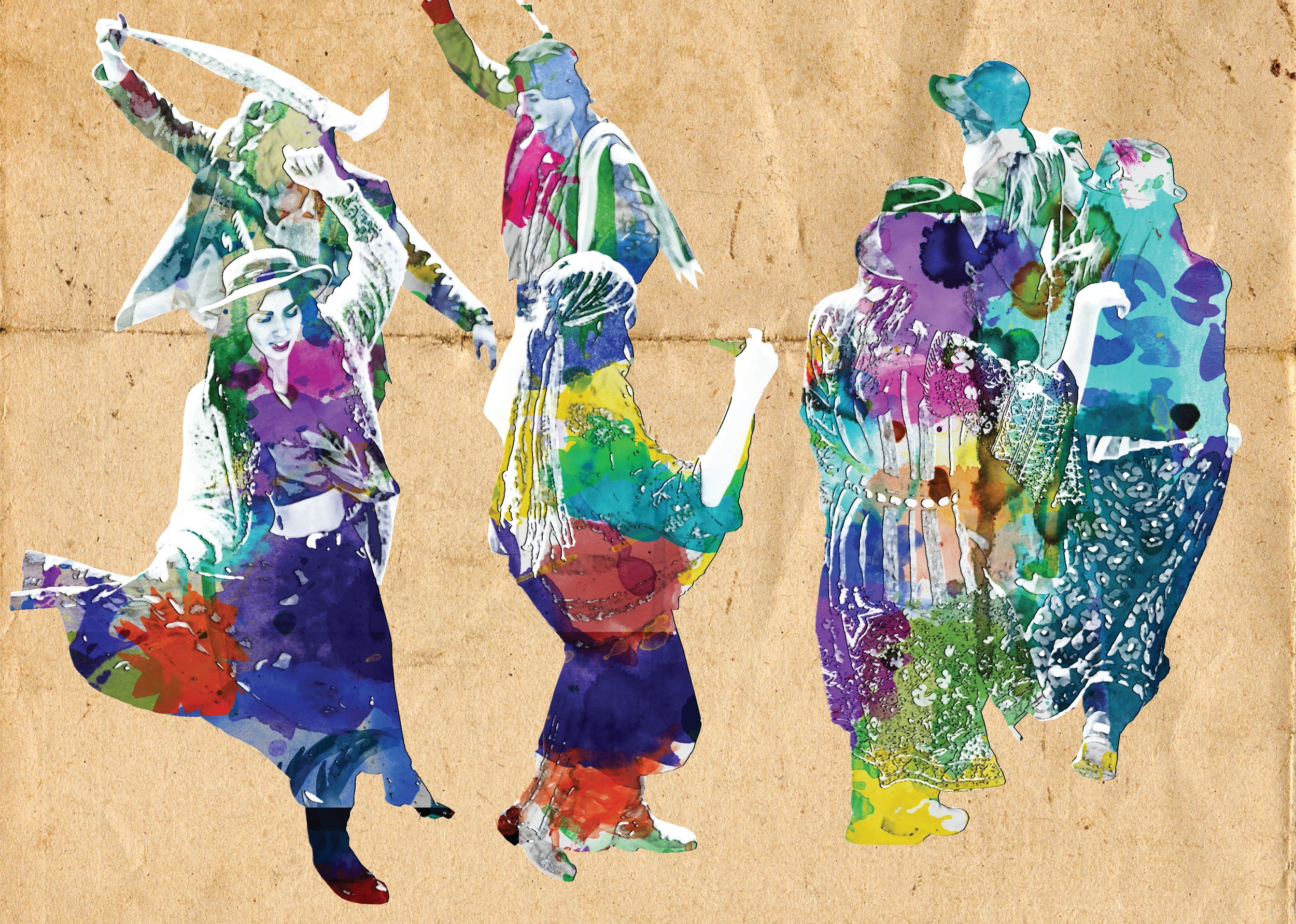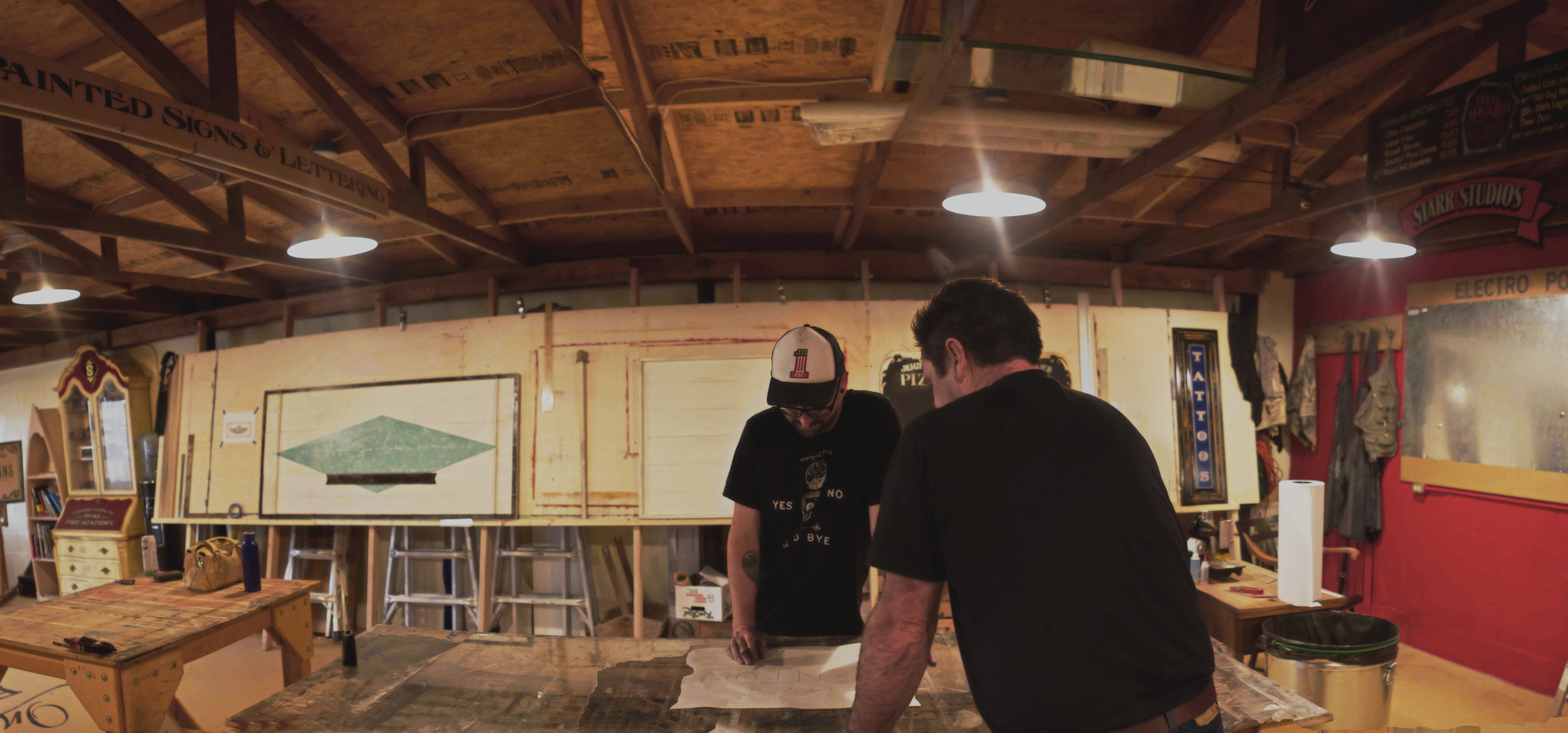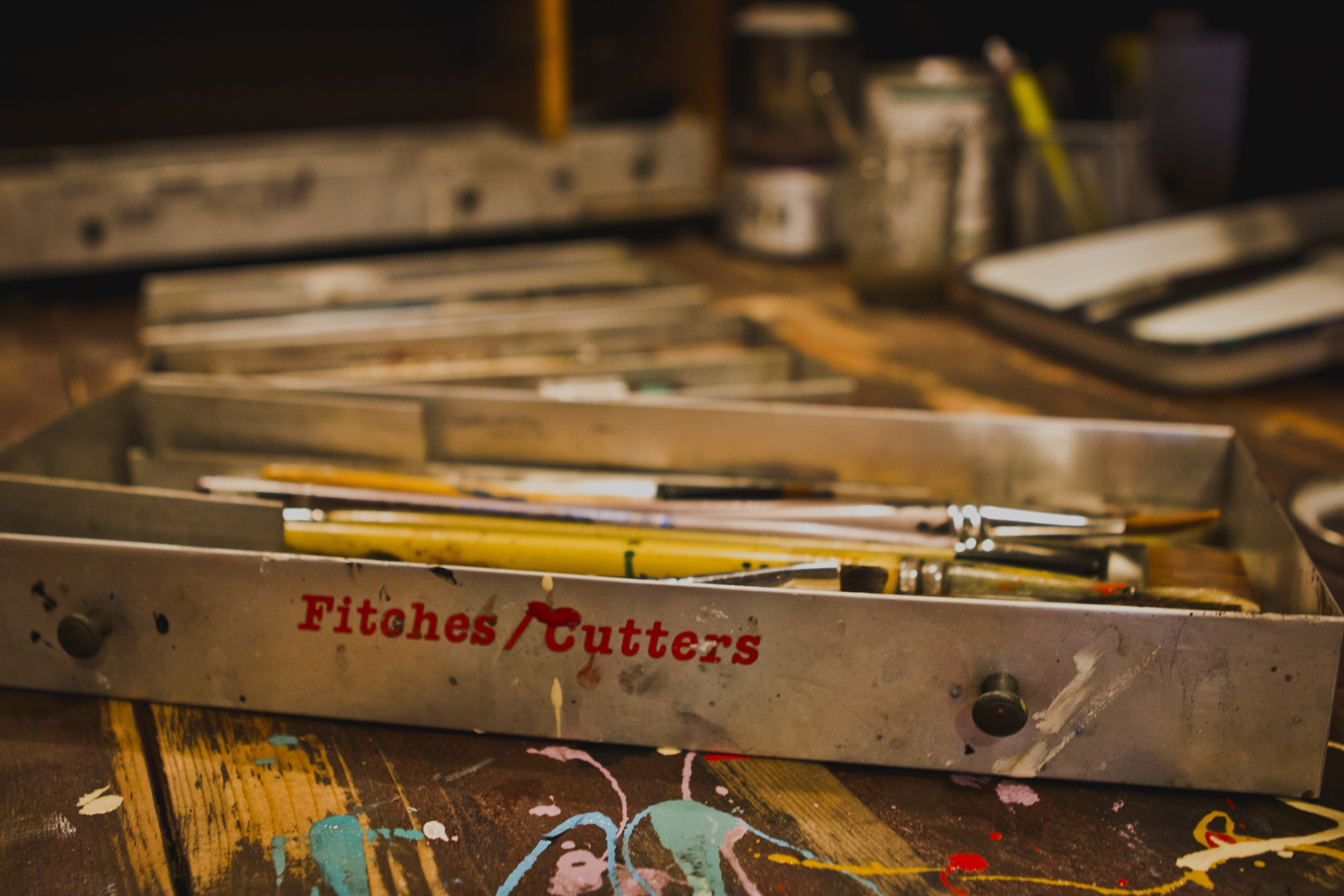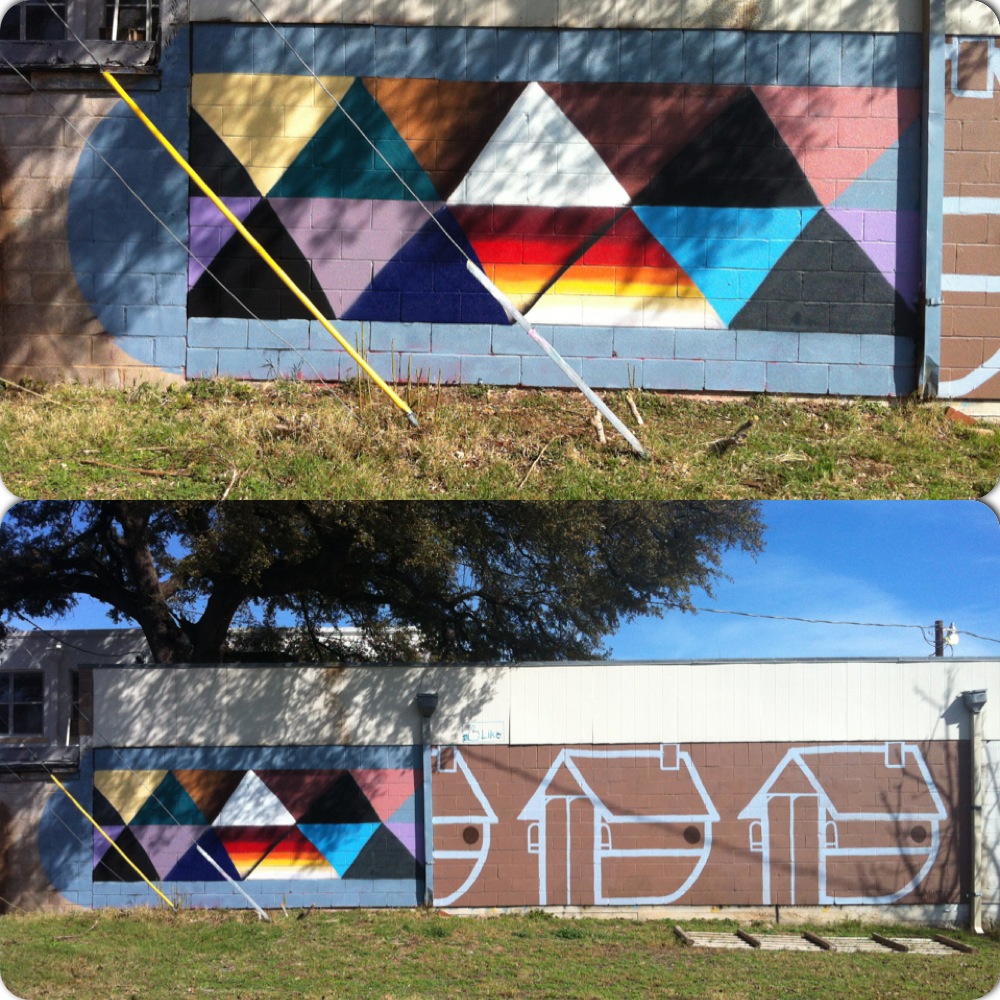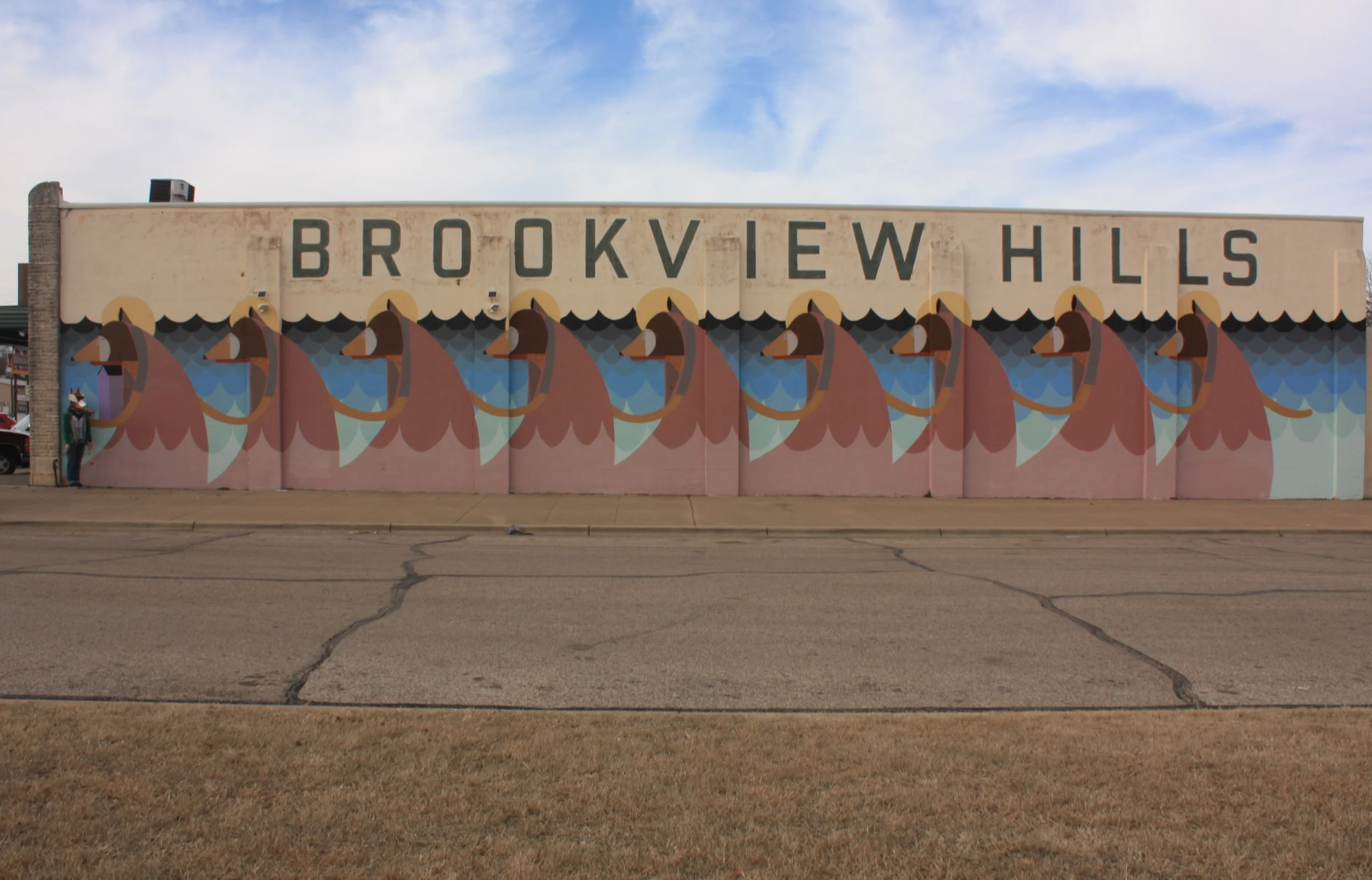Tell us about your history with Denton.
Heather: My
parents were born and raised in Denton.
I lived in Denton all my life until I was 19. I left to go to college in Austin and then
lived outside of Texas for 6 years. I
returned to Texas in December 2012 to be closer to my family. After deciding to relocate to Texas I
considered moving to Austin, Dallas and Denton.
I ultimately chose to live in Denton because of the strong sense of
community, independent spirit, creative culture and untapped potential that I
see here. I have been back for just over
5 months and have been so inspired and motivated by the people, ideas,
creativity and enthusiasm that I have experienced and am thrilled to get to be
a part of it.
Tristan: I am a Denton native so I spent most of my childhood and adolescent years in
Denton. I moved outside of Texas when I was 19 and spent a good 6 years
away, wandering and experiencing what the world had to offer. I returned to
Denton in the spring of 2010 to be closer to family. Upon my return I started to
notice that Denton was on the verge of a great change socially, politically, and
economically. Everything that I had left Denton for was now happening and I
wanted in. I want to help build the community to its fullest potential whatever
that is, and help to create a space where we can take that potential and turn it
into something innovative and vital for the Denton community.
Why a collaborative arts space?
Tristan: Denton already has many creatives that collaborate and create amazing work
on their own, but what Maker Space is looking to create is a space where those
collaborative efforts can become better connected to the community at large.
By creating a community space for creative efforts we can really open the lines
of communication amongst creatives, of all disciplines, and potentially push
Denton forward into becoming a vital/sustainable creative source.
Heather: Because
there are so many creative people that live here and there is no infrastructure
for them to work within. I went to
school for Architecture and it wasn't until I graduated that I fully realized
what an amazing community I had been a part of and the extensive resources that
I had access to. Since graduating in
2006, I've missed the feeling of a design studio, the accountability and
inspiration that other creative people can offer. Being a freelance designer I personally would
benefit from working in a community of creative people and access to tools that
are cost prohibitive for me to invest in and believe that there are other
people in Denton that feel the same way.
Can you elaborate to what exactly you’re
intending to create? What kind of space or services are you planning to
provide?
Heather: We want
to create a space for creatives of all disciplines to come together to make
whatever it is they make. We will
provide well designed and inspiring space that enables creativity and
collaboration. Maker Space will also
provide the tools, knowledge and other resources for people to develop or
expand their business endeavors.
There
will be office space and conference room for those that desire dust-free
creative space. Imagine graphic
designers, web developers, architects, videographers, and illustrators all
working away on their computers or drawings boards in a design studio
setting.
There
will be flexible workshop space with work benches and a hand tool library where
people can create more “tangible” work.
Jewelry makers, fashion designers, letter pressers, painters and many
others would bring in the materials that they need for their work and have
access to tools, space and a creative community.
There will be a woodshop with tools that help furniture makers, fabricators,
wood workers and sign makers with their work.
There are
other ideas that have been tossed around like a dark room, a laser cutter, and
electric kiln. We have a running list of
tools that we are considering including and it ultimately comes down to what
the maker community of Denton needs.
How has maker-culture influenced you?
Heather: I love
the practice of making. I get so much
joy from being connected to the source of creativity and believe that seeing
what other people are making pushes me to a higher quality of my own work.
There is
a“craft” resurgence in other creative communities like Portland, OR and Marfa,
TX. People are coming together in
support of food producers and preservers, brewers and distillers, makers of
clothing, shoes, and accessories. There
is a lot of power that comes from purchasing something that was made by
somebody you know. The maker culture
drives creative economies and connects people to each other and that community
connection is a huge passion of mine.
Tristan: In a world of quick and easy everything; from the food we eat, to the products
we buy, there just always feels like a desire for something more, something
with a little bit of substance, a story, a connection to the maker. I feel an
emptiness when participating with the quick and easy culture and that
emptiness is what draws me towards maker-culture. Friends, neighbors, and
people of the community making things for their community and thus creating a
vital self-sustaining local economy. It would be incredibly empowering for
Denton to be able to provide most of its goods and services locally and not
depend on outside manufacturers to provide them for us. Denton has all of the
pieces to create that kind of community and with a resource like Maker Space
we would really like to help foster that type of maker community.
How has the creative community in Denton
influenced your decision to start the Makers Space?
Heather: There is
so much creativity in Denton! We are
known for our music culture, obviously, but there is so much more here that has
been flying under the radar for far too long.
Our universities produce incredibly talented print makers, graphic
designers, fiber artists, fine artists (I could go on) and when these talented
individuals graduate, they don't see many opportunities in Denton to put those
creative skills to work. I want to start
Maker Space so that they can see it's possible to make money off of creative
work and to offer some support and infrastructure for them to take that first
step. My dream would be for Maker Space
to really put Denton on the map for a diverse and thriving creative
economy.
Heather, you're heavily involved with Scrap. How do you see Maker Space and Scrap working together in the Denton
creative market?
Heahter: I
consider myself incredibly lucky to have a job that utilizes my skills in
community organizing for an organization with a creative mission. It puts me in direct contact with a lot of
active artists and makers and I get to sell a product that I've always been
passionate about (reused materials).
There is
a very natural overlap between these two organizations and it makes me excited
to think of ways that we might work together.
I'd love to see SCRAP offering a discount to Maker Space members to
encourage them to use reused materials in their work. SCRAP doesn't have a very large space and
when we had 100+ people there for our fund-raiser last December it was
uncomfortably crowded. I'd love to be
able to host our next fund-raiser at Maker Space. I also think that SCRAP hosting craft nights
at Maker Space would be super fun. If I
let myself really dream, I can't help but imagine an artist in residency
program that is in partnership between Maker Space and SCRAP.
In what ways do you think this space can
positively affect our community?
Heather: The
possibilities are endless. To start,
better graphic design and aesthetics in our local businesses. Creative start-ups and collaborations
emerging from Maker Space members. A
stronger and more well rounded creative identity where the output is visible as
you move through the city. As Denton
grows, I would hope to see more opportunities for the creative work staying in
Denton and not needing to be outsourced to DFW and beyond.
Bringing
creative people together is really powerful and there is no way I can predict
the innovations and brilliant ideas that might be generated because of this
space.
Tristan: I really want the space to create a sense of empowerment for the members
and for the Denton community at large. There are so many great ideas floating
around in this town and all they really need is a place to further develop and
create them. As a business development resource, a community education
center, a collaborative workspace, and as a supportive community space,
Maker Space hopes to empower people with their ideas and assist in creating
the kind of creative social and economic landscape that can benefit the entire
community.
Heather you were part of a similar space in
Portland. Tell us how that has influenced opening a collaborative maker studio?
Heather: Yes, I
was a member of a space called ADX. I
was living in a really tiny travel trailer that I had renovated and was getting ready for
a gallery show and literally just didn't have room to do my work. I was a member for a couple of months and
used the flex workshop space. I saw
first hand the work that was being produced and the results were innovative,
creative, diverse and inspiring.
After
moving back to Denton it didn't take long at all to see how much creativity
exists in this city. The idea came about
a little selfishly, because I was having a hard time staying motivated working
in my bedroom and garage studio so removed from anyone. I realized that I would really benefit from
having a space like ADX here in Denton and believed that I wasn't the only one.
What are some of the challenges you've run into
so far while getting Maker Space up and running?
Heather: So far,
the challenges have been minimal. We
have received so much positive support and feedback from the creative community
here as well as from members of City Council and the City of Denton
itself.
The
biggest challenges we can foresee at this point are raising the necessary
capital and finding the right space. We
need a large, fairly open space (5,000 sq ft) and want that to be in downtown
or industrial Denton and are hopeful that we find a property owner to is
supportive of our idea and wants to work with us.
You guys are heading up the next Creatives
Mixer. What should we expect? Who are you collaborating with for this event?
Heather: Yes, we
are so excited about the next Denton Creatives Mixer. Since Maker Space is co-hosting along with
Kevin Roden, we wanted to highlight some of the creative start ups that exist
here. It was important for us to
highlight individuals who are drivers of the creative economy here in
Denton. We have asked a few different
businesses to talk about their experience of being a creative small business
owner and are really excited about the lineup of speakers. We will be hearing from DIME, Pan Ector
Industries, Triple Threat Press, The Denton Community Market and Maker Space.
The mixer
will also have lots of time dedicated to networking. We want people to be able connect to
resources, potential partners, property owners, etc. - so bring your business
cards!
Favorite three things in/about Denton.
Tristan: The accessibility of our city government officials- the fact that I can call or
even text local politicians or government workers and talk about issues
surrounding Denton is incredible. I feel like everyone should know that that is
part of what makes this city amazing- having access to change makers but also
having the ability be a change maker. We can make this city what we want, we
just have to speak up!
The Community- this is where I’m from and this is the community I love.
The weather- I love the sun.
Heather: Breakfast tacos. After living outside of Texas for 6 years I
got tired of arguing the differences of a breakfast burrito vs a breakfast
taco.
The community.
Seriously, I've been back for 5 months and already feel so connected to
what's happening and who is making it happen.
The support that people have for each other is simply amazing.
The small town feel. I
love running into people I know. There
is a true friendliness to this place.






















